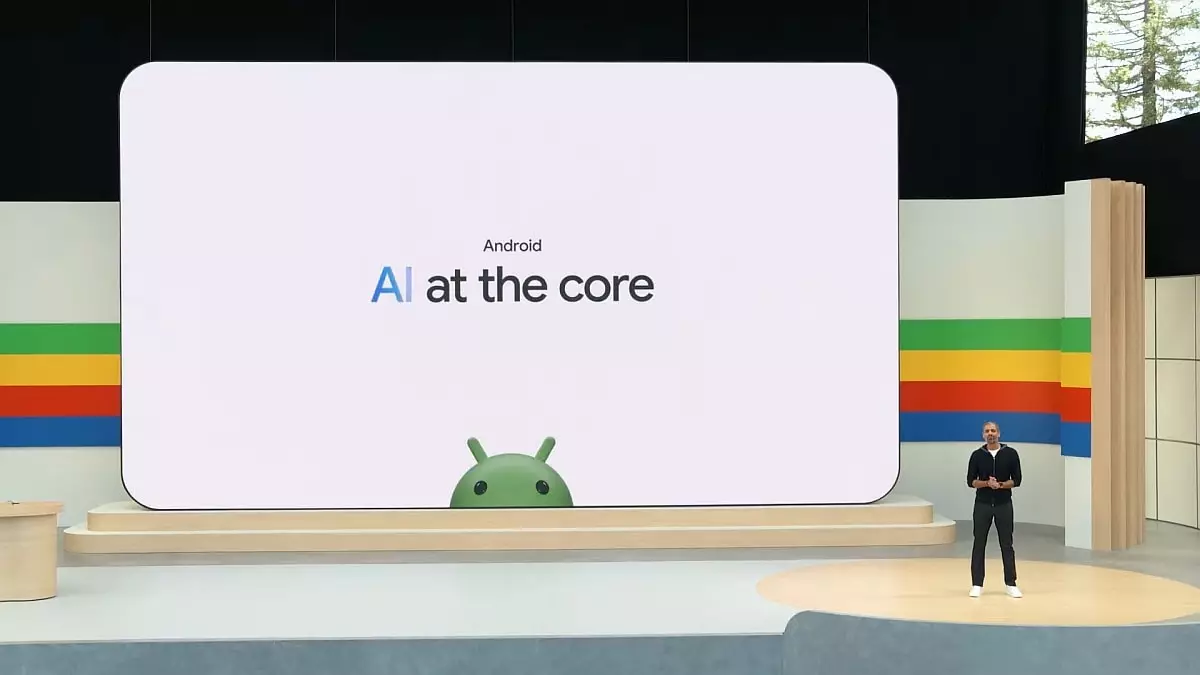Google I/O 2024 commenced with a bang on Tuesday, marking the beginning of the company’s annual developer conference. During the keynote event, Google’s executives unveiled a plethora of new features that are set to revolutionize the Android smartphone experience in the coming months. Notably, the company refrained from disclosing details about Android 15 features, leaving users anticipating further updates. These announcements precede the highly anticipated major smartphone operating system update expected to roll out in the second half of 2024.
Dave Burke, the VP of Engineering at Google, shed light on the upcoming AI-powered features that will enhance the functionality of Android smartphones in the near future. Among the impressive additions is an upgraded version of Circle to Search, a visual lookup feature currently limited to select Samsung Galaxy and Google Pixel devices. The new iteration will allow students to seek assistance with their homework by utilizing Google’s LearnLM technology. This innovative feature enables users to circle a prompt to solve complex problems involving symbolic formulas, diagrams, graphs, and more, set to debut later this year.
Google’s AI model, Gemini, is also receiving enhancements for Android smartphones. Gemini will soon offer information about YouTube videos and enable users to seamlessly incorporate AI-generated images into Gmail and Messages. Moreover, users can leverage Gemini Advanced to extract answers from PDF documents efficiently, bypassing the need to scour through numerous pages. Additionally, Google Pixel smartphones will now support Gemini Nano with Multimodality, the latest model for on-device AI processing. This advancement allows Pixel phones to process contextual information like visuals, audio, and spoken input, going beyond just text processing capabilities.
Artificial intelligence is permeating everyday applications on Android smartphones, including the dialler feature. A live demonstration showcased at Google I/O 2024 highlighted the dialler’s capability to detect potential scam calls, safeguarding users from fraudulent attempts to obtain sensitive banking information over the phone. This real-time, on-device protection ensures user privacy while tackling security threats proactively. Although Google has not specified the timeline for the availability of these features or the supported devices, it is evident that AI is becoming increasingly integrated into various facets of smartphone functionality.
Google TalkBack, an essential accessibility feature on Android smartphones, is poised to receive a substantial upgrade with Gemini Nano’s multimodal features. Visually impaired users will benefit from enhanced image description capabilities, allowing them to access detailed information about unlabelled images. The on-device functionality of these new features ensures that users can take advantage of improved accessibility even when offline, underscoring Google’s commitment to inclusive technology. While a definitive launch date for the upgraded Google TalkBack service powered by Gemini Nano with Multimodality remains unspecified, Google has reassured users that it will be rolled out “later this year.”
Google’s focus on integrating artificial intelligence into Android smartphones heralds a new era of innovation and user experience enhancement. With upcoming features such as advanced AI-powered functionalities, improved accessibility tools, and enhanced on-device processing capabilities, Android users can look forward to a more intelligent and efficient mobile experience in the near future.


Leave a Reply